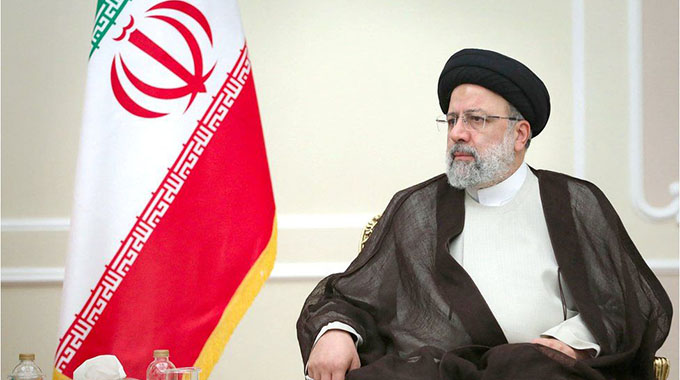JUST IN: Jury orders Monsanto to pay $2bn to couple in Roundup cancer case

A jury in the US state of California has ordered Bayer-owned Monsanto to pay more than two billion dollars in damages to a couple that sued on grounds the weedkiller Roundup caused their cancer.
The jury’s verdict on Monday was the third such courtroom loss for Monsanto concerning the chemical, which Bayer acquired as part of its $63bn purchase of the company last year.
Both other jury verdicts also came in California, one in state court and one in federal court.
German agro-chemicals and drugs giant Bayer announced last month that more than 13,000 lawsuits related to the weedkiller had been launched in the United States. It insists the glyphosate-based product is not linked to cancer.
The jury in Alameda County Superior Court in Oakland on Monday said the company was liable for plaintiffs Alva and Alberta Pilliod’s contracting non-Hodgkin’s lymphoma, a spokeswoman for the couple said.
It awarded $18m in compensatory and one billion in punitive damages to Alva Pilliod, as well as $37m in compensatory and one billion in punitive damages to his wife, Alberta Pilliod. The damages award is likely to be reduced due to US Supreme Court rulings that limit the ratio of punitive to compensatory damages to 9:1.
The jury found Roundup had been defectively designed, that the company failed to warn of the herbicide’s cancer risk and that the company acted negligently.
“The jury saw for themselves internal company documents demonstrating that, from day one, Monsanto has never had any interest in finding out whether Roundup is safe,” said plaintiff’s counsel Brent Wisner.
“Instead of investing in sound science, they invested millions in attacking science that threatened their business agenda.”
The Pilliods allege the regular use of Roundup on their property between 1975 and 2011 caused them to develop cancers of the lymph system.
They filed their lawsuit in 2017 after being diagnosed with cancer in 2011 and 2015, respectively. Both of them are currently in remission, but their trial had been expedited due to the risk of a relapse and potentially short life expectancy.
Bayer to appeal
In a statement, Bayer said it was disappointed with the jury’s decision and would appeal the verdict, which it argues was at odds with a recent US Environmental Protection Agency (EPA) review of glyphosate-based weedkillers.
“The consensus among leading health regulators worldwide is that glyphosate-based products can be used safely and that glyphosate is not carcinogenic,” Bayer said.
The company said both Alva and Alberta Pilliod had long histories of illnesses known to be substantial risk factors for non-Hodgkin’s lymphoma.
The EPA reaffirmed its position in April, saying that the active ingredient glyphosate found in the weedkiller posed “no risks of concern” for people exposed to it by any means – on farms, in yards and along roadsides, or as residue left on food crops.
The prior two jury verdicts against Bayer in Roundup trials in the US triggered steep declines in Bayer shares.
A San Francisco state court jury in August 2018 awarded $289m to a California groundskeeper, finding Monsanto’s glyphosate-based weedkillers caused his cancer. That award was later reduced to $78m and is on appeal.
In March, a federal jury in San Francisco awarded $80m to another California man after finding Roundup caused his cancer. The company also said it would appeal that decision.
“Unlike the first two Monsanto trials, where the judges severely limited the amount of plaintiffs’ evidence, we were finally allowed to show a jury the mountain of evidence showing Monsanto’s manipulation of science, the media and regulatory agencies to forward their own agenda despite Roundup’s severe harm to the animal kingdom and humankind,” said laywer Michael Miller, who was co-lead trial counsel along with Wisner.
Collating lists
The verdict came the same day that Bayer admitted that its Monsanto could have kept lists of key political figures – for or against pesticides – in European countries.
Bayer apologised on Sunday after it emerged that Monsanto had a PR agency collate lists of French politicians, scientists and journalists, with their views on pesticides and GM crops.
“I think it’s very likely that such lists also exist in other European countries,” Matthias Berninger, Bayer’s head of public affairs, told journalists in a conference call.
Berninger said he “firmly believes that other countries in Europe will be affected.
“We consider what we have seen so far to be completely inappropriate,” he said.
“However, we were of the opinion that the reports of these dealings with journalists, politicians and activists are not in order and not in agreement with what Bayer stands for.”-AlJazeera







Comments